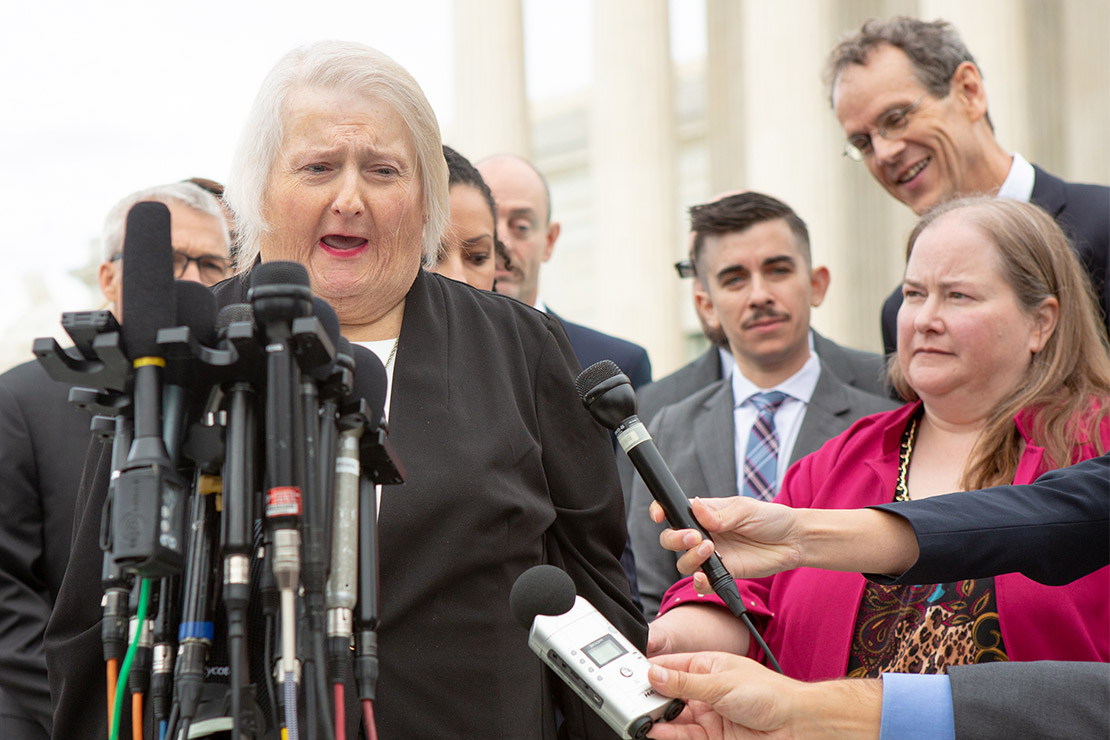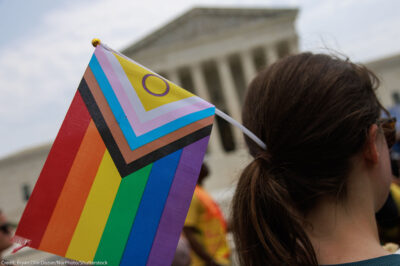Supreme Court Agrees to Hear LGBTQ Workplace Discrimination Cases
WASHINGTON — The Supreme Court today agreed to hear R.G. & G.R. Harris Funeral Homes v. EEOC & Aimee Stephens and Altitude Express Inc. v. Zarda, and to decide whether to take away federal civil rights protections from LGBTQ workers.
Stephens, whom the American Civil Liberties Union and the ACLU of Michigan represents, was fired from her job after coming out as transgender, and the Sixth Circuit Court of Appeals ruled that her firing was a form of sex discrimination that violates Title VII of the Civil Rights Act. Five federal appeals courts and dozens of federal district and state courts have affirmed that view, ruling that existing federal laws protect transgender people from discrimination.
Donald Zarda was fired from his job after a client learned he was gay, and the Second Circuit Court of Appeals ruled that his firing was a form of sex discrimination that violates Title VII of the Civil Rights Act. The Seventh Circuit has also ruled that firing someone because of their sexual orientation is a form of sex discrimination, as has the federal Equal Employment Opportunity Commission, which investigates charges of workplace discrimination nationwide.
Zarda died in an accident in 2014. His surviving partner, Bill Moore, and his sister, Melissa Zarda, have continued the lawsuit on behalf of the estate. The American Civil Liberties Union represents the estate as co-counsel with Greg Antollino of Antollino PLLC and with Pam Karlan and Jeff Fisher of the Stanford Law School Supreme Court Litigation Clinic.
This is a key judicial test of the theory put forward by the Department of Justice in a leaked memo last fall that aims to erase transgender people from sex discrimination protections. Should the Supreme Court overturn the lower courts’ rulings, it would take away existing protections from lesbian, gay, bisexual and transgender employees, saying that it is lawful under federal law to fire LGBTQ people for their gender identity or sexual orientation.
James Esseks, director of the ACLU LGBT & HIV Project, had the following response:
“Most of America would be shocked if the Supreme Court said it was legal to fire Aimee because she’s transgender or Don because he is gay. Such a ruling would be disastrous, relegating LGBTQ people around the country to a second-class citizen status. The LGBTQ community has fought too long and too hard to go back now, and we are counting on the justices not to reverse that hard-won progress.”
Aimee Stephens had the following response:
“What happened to me was wrong, it was hurtful and it harmed my family. I hope the Supreme Court will see that firing me because I’m transgender was discrimination.”
Melissa Zarda had the following response:
“When my brother told me that he was fired, I was shocked. I couldn’t believe that you could be fired for being gay. I thought that this had to be against the law. I hope the Supreme Court will see that what happened to my brother was wrong.”
Attorney Greg Antollino had the following response:
“What happened to Don Zarda was both wrong and against the law. All Americans should be able to work and not fear discrimination because of who they are. This case matters because it is about basic human dignity, and the promise of equal treatment for all.”





